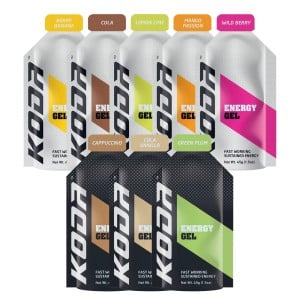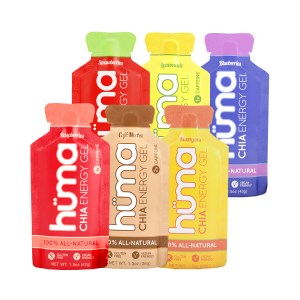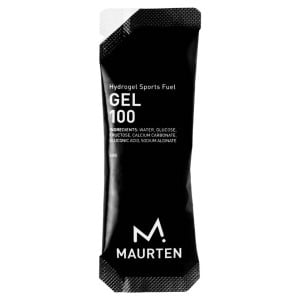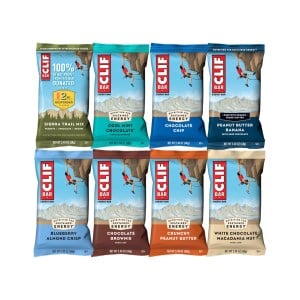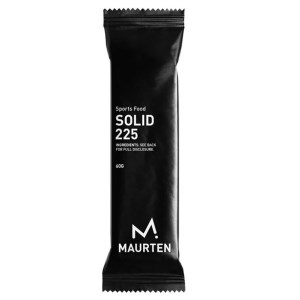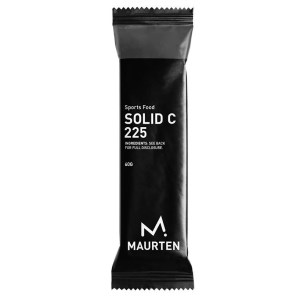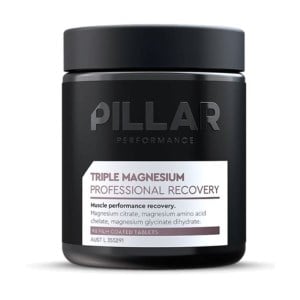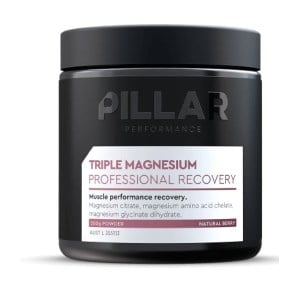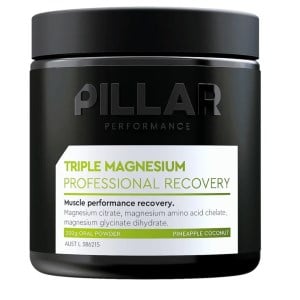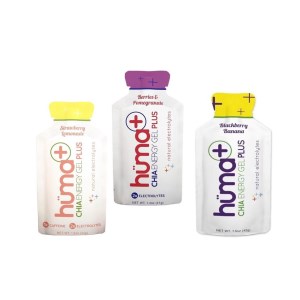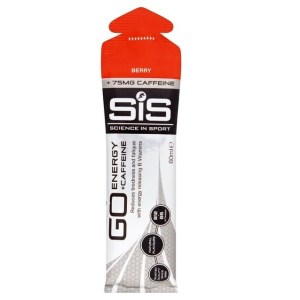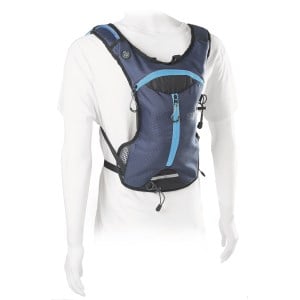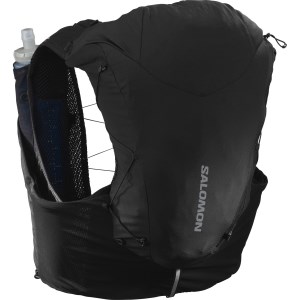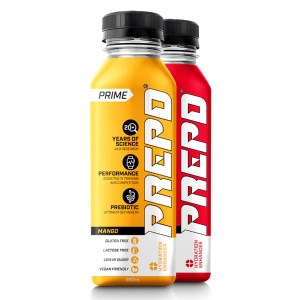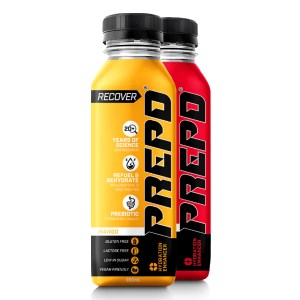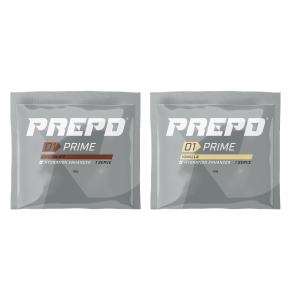Ultramarathon Nutrition & Hydration Guide: Carbs, Electrolytes & Caffeine
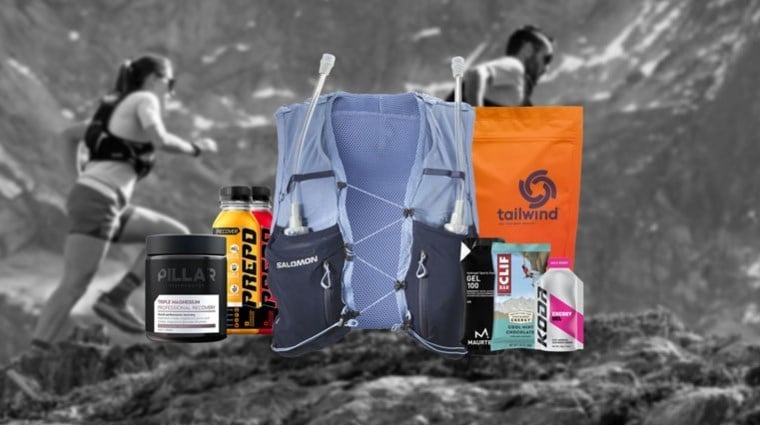
When you commit to ultramarathon training, your focus is on your muscles and mind – adapting them to take on a higher training load with less perceived effort. However, there’s something missing from this formula.
Training your gut is an equally critical part in whether you survive your ultramarathon or need to cut out early due to digestive upset. 'Hitting a wall' - a sudden feeling of fatigue when your muscles aren't receiving the fuel needed to sustain their movement - is also a real risk.
Your sports nutrition literally fuels your body and is essential for supporting both muscle movement and your motivation. Your nutrition and hydration strategy on race day is fundamental to performance and plays a powerful part in your recovery.
There is no shortcut to boosting your endurance and mental resilience to tackle your next 50km ultramarathon, 100km ultramarathon and beyond – and many factors on race day will be out of your control. However, you can control what you eat and drink to ensure your body has access to sustainable energy and hydration.
In this blog, we’ll touch on the science of food for fuel and the role of the carbohydrates, electrolytes, caffeine and water you ingest in supporting your ultramarathon success. We’ll dive into the world of running nutrition to provide you with insight on everything from research-based energy gels, sports drinks, hydration enhancers and wholefoods to highlight how you can use them in your nutrition strategy to get you across the finish line.
Please note that this is an ultramarathon nutrition and hydration guide. Different runners can have varying levels of tolerance or successes with the same nutrition strategy – so it’s important to trial what works for you as part of your training routine, with room to adjust and test your nutrition plan before race day comes around.
How & Why Does Running Affect Your Digestion?
As an ultramarathoner, it’s valuable to understand how your digestive system is affected during intense or extended training and competition.
When you run, your respiration increases to fulfil your body’s increased oxygen demands, and your body redirects blood flow to where it’s immediately required – your working muscles, as well as to the skin to disperse heat generated in muscle movement. Your blood is your body’s mechanism for transporting oxygen to your active muscles to support increased activity.
This oxygen is key in breaking down glucose derived from food (particularly carbohydrates) to convert it to usable energy, referred to as ATP (adenosine triphosphate) which is responsible for fuelling muscle movement.
But what does this mean for your digestion? When you run, your blood is diverted away from your intestines to support your active muscles (e.g. the adductors, quadriceps, hamstrings, and calves of your legs).
Consequently, blood flow to the intestines is reduced and your body can’t digest foods as efficiently. Digestion is slowed, meaning the absorption rate of the nutrients you ingest is also affected. In combination with the jostling movement of running, this can result in temporary gastrointestinal (GI) distress including ‘runner’s trots’ (running-induced diarrhoea), bloating, nausea and vomiting.
The goal of your ultramarathon nutrition plan therefore should be:
- To provide sustainable and effective energy to support muscle movement, mental focus and recovery
- To do so while keeping digestive distress to a minimum
Ultramarathon Nutrition: Importance Of Carbohydrates
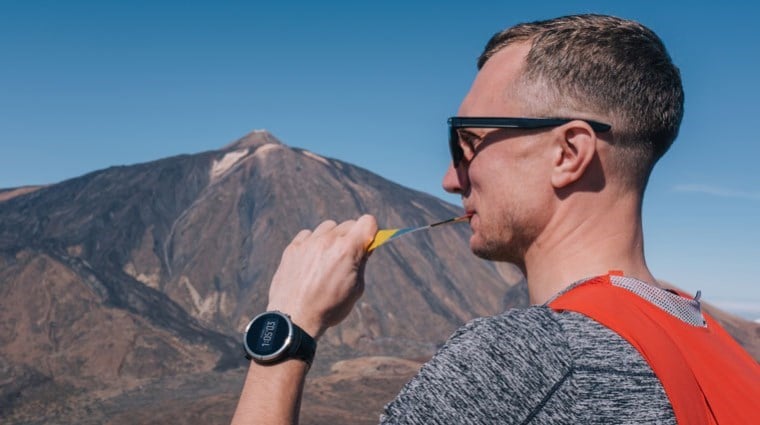
Carbohydrates are your body’s primary source of energy – an essential macronutrient (alongside protein and fat) available in the form of dietary fibre, starches and sugars. Carbohydrates are primarily plant-based – with starchy vegetables (e.g. potatoes, sweet potato, corn and beans), grains, rice, pasta and bread being key sources, and smaller quantities being available in other vegetables, fruit and dairy. Stored carbohydrates in the muscles or liver are referred to as glycogen.
How to Carb-Load For An Ultramarathon
For ultramarathoners, it’s essential to top off glycogen levels before the race commences – thinking ahead to not only the night before or the morning of, but the 2-3 days prior to the race. Gradually increasing your carb intake in your meals during this time helps your digestive system adapt to an increased carb load. You can prime your body for race day, rather than overcompensating in the hours before with an overly carb-heavy meal and risking digestive upset.
Carb-loading should be a gradual process. It’s important to ‘train’ your digestive system to tolerate carb-loading before training sessions that resemble the duration, intensity and conditions of race day. When race day rolls in, you’ll know what nutrition works for you and what doesn’t by having trialed and tested foods when the stakes are lower.
Consider trailing these carb-rich meals as part of your ultramarathon nutrition strategy:
- Rice cakes/toast/bagel topped with peanut or almond butter and fruit (e.g. banana)
- Pasta/rice with lean chicken/grilled salmon and vegetables
- Jacket potato with tuna
Specifically for the purpose of racing and endurance runs, unless you have a tolerance to running with high-fibre carbs as your fuel, it's safer to opt for low-fibre (refined) carb sources. High-fibre or wholegrain carbohydrates, despite their boutiful nutritional benefits, can increase the risk of gastrointestinal upset and slow down the absorption of nutrients.
Keep in mind that dietary fibre should absolutely be included in your everyday diet to support a healthy digestive system and to reduce the risk of heart disease and specific cancers. You can read Sports Nutrition: Healthy Carbs, Protein & Fats To Improve Performance & Recovery for more information on how to include high-fibre carbs into your day-to-day meals.
How To Keep Your Energy Up During Your Ultramarathon
Refuelling on-the-go is also critical to sustain your energy during long distance runs, considering that endurance runners typically deplete their glycogen stores 2 hours into the race. As a guideline, it’s recommended that ultramarathoners consume 60 – 90g of carbs per hour. Be aware that conditions on the day can also play a part, with more carbohydrates generally required when racing in cold weather.
There is a variety of options to top up your carbs during your (half) marathon, marathon or ultramarathon:
Energy Gels
Your race day nutrition isn’t simply about ingesting the right nutrition, but considering the challenge it presents for your digestive system to absorb it.
With modern advancements in sports nutrition, reputable brands are developing energy gels that are not only portable and practical, but provide a fast-acting, easily digestible source of energy that’s gentle on sensitive stomachs.
Running nutrition brands may take a variety of approaches to achieve this effect. Koda Energy Gels offer a carb-rich, semi-fluid formula. They come in a 'pre-digested' state – keeping in mind that it takes energy to digest nutrients, and in terms of race day, it’s best to preserve this energy for muscle movement. The easier your carbohydrate source is to digest, the less energy is diverted away from your performance.
Maurten Gel 100 Energy Hydrogel provides an optimal blend of fructose and glucose (0.8:1 ratio) in the form of an encapsulated gel. This innovative technology allows this carb-packed formula to travel from your stomach to your small intestines free of GI distress while supporting efficient absorption – allowing your body to make use of up to 100g of carbs per hour.
Huma Chia Energy Gel also should be on your radar – especially for athletes that want to keep their energy gel choices as natural as possible. Natural ingredients like powdered Chia seed and real fruit puree or juice create a nutritional powerhouse of energy while being gentle on sensitive stomachs. A gluten free, soy free, dairy free and vegan-friendly formula make it an accessible source of energy while meeting a variety of nutritional requirements. Huma Chia Energy Gel Plus contains double the electrolytes, and we'll discuss the importance of these below.
Your energy gels should be:
- Fast-acting and easy to digest
- Compact to store in your hydration pack or hydration belt
- Convenient to consume (semi-liquid or jelly-like texture)
- Free of sugar spikes and crashes (common to sugary energy drinks)
- Gentle on sensitive stomachs
- Palatable
Alongside a source of carbohydrates for energy, energy gels may also contain electrolytes and caffeine, but this will depend on the specific brand and product.
Some runners may enjoy the convenience of energy chews instead of or in combination with energy gels, like the Clif Bloks Energy Chews. Energy chews provide a concentrated source of energy in a small package. Many have a lolly-like texture and may also contain electrolytes and/or caffeine.
-
Koda Energy Gel - 45g Sachet
-
Huma Chia Energy Gel - 43g Sachet
-
Maurten Gel 100 Energy Hydrogel - 40g Sachet
Energy Bars
Energy bars from leading sports nutrition brands like Clif and Maurten feature healthy, wholesome and carb-rich ingredients like oats or rice without the need to prepare them at home. This makes them tick the boxes for runners seeking natural ingredients in a run-ready package. Designed to provide sustainable energy with carbohydrates to fuel muscle movement, they’re a welcome addition to the nutrition strategy of many ultramarathoners.
Available in many flavours from cocoa to blueberry to macadamia, they reward your endurance efforts with a flavourful experience.
-
Clif Bar Energy Bar - 68g
-
Maurten Solid 225 Energy Bar - 60g
-
Maurten Solid C 225 Energy Bar With Cocoa - 60g
Homemade/Natural Foods
Some runners crave homemade/natural foods during racing which can be consumed in combination with energy gels and pre-made energy bars.
These natural foods need to be convenient, palatable and easy-to-eat on the go. As a quick tip, we recommend investing in reusable baby food pouches to easily store the pureed suggestions in your hydration pack and lower cost to you and the environment compared to one-use zip lock bags.
Ultramarathoners may have a preference of semi-liquid or pureed foods in preference to solids in terms of their digestibility, whereas others may find solid foods feel more substantial or satisfying.
Pureed/Semi-Liquid Natural Fuel:
- Mashed potatoes
- Honey
- Fruit sachets (designed for babies and toddlers - but also fantastic for endurance athletes)
Solid Natural Fuel:
- Salted pretzels
- Salted peanuts (salted to replenish sodium levels lost in sweat)
- Raisins
Ultramarathon Nutrition: Importance Of Electrolytes
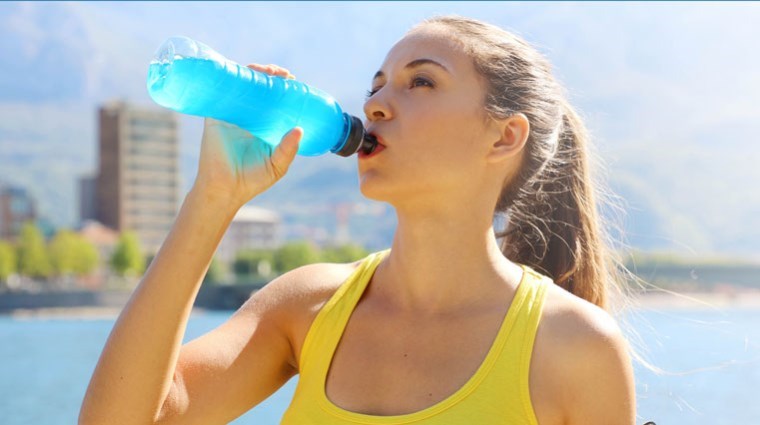
Electrolytes may seem like a ‘buzz’ word in every athlete's running glossary, but their real-world benefits shouldn’t be underestimated. In fact, electrolytes are essential for performance, recovery and your survival. These minerals are critical for regulating the vital functions of your body – from the beating of your heart to the movement of your muscles, as well as supporting your digestive system, nervous system and maintaining a healthy blood chemistry (pH levels).
Electrolytes are ionic – meaning they carry an electric charge (when dissolved in water). Yes, your body is organic, however it relies on these small electrical charges to support biological processes.
The challenge for endurance runners is maintaining an optimal level of electrolytes in the body. Electrolytes are lost in sweat, particularly sodium and chloride, as well as magnesium, calcium and potassium to a lesser extent. By understanding the role these electrolytes have in your performance on a fundamental level, you can gain an appreciation of why electrolyte-boosting sports drinks are a vital part of your race day plan. As you’ll soon discover, electrolyte levels in your body are all about balance.
Sodium
Sodium aids in the fluid balance of your body. It helps maintain optimal levels of water outside of your cells (in the extracellular fluid) where sodium is mostly located in the body. Low blood sodium levels or hyponatremia can be a dangerous condition that causes your cells to swell with an overabundance of water. This can potentially occur if you overhydrate, which causes an excessive dilution of your sodium levels, or if you don't adequately replenish your sodium that is lost in sweat during high-intensity or endurance exercise.
A healthy level of sodium outside the cells attracts water like a ‘fluid magnet’, causing water to pass from inside the cell to outside the cell membrane in a process called osmosis, and into the blood plasma. When your blood plasma volume increases, your heart is under less strain to pump your oxygen-rich blood to your active muscles to fuel performance, and to the skin where heat can be dispersed.
Sodium also has a key responsibility in supporting the absorption of nutrients by the small intestine.
Potassium
Potassium plays a role in fluid balance and is a fundamental for hydration, acting as a counterpart to sodium to keep an optimal level of water within the internal fluid of your cells. Potassium is located within this intracellular fluid and similarly to sodium, water is attracted to potassium - in this case to avoid the dehydration of cells. When sodium and potassium are in optimal balance, the fluid levels within the cell and outside the cell are stable.
Potassium can aid in maintaining a healthy blood pressure, whereas an overabundance of sodium can cause high blood pressure. Potassium is also critical for everything from supporting nerve signals to allowing cells to transmit messages, to muscle contractions, storage of glycogen, nutrient transportation and kidney function.
Chloride
Alongside sodium and potassium, chloride also plays a critical role in fluid balance. It supports water regulation within the body and maintains the homeostasis of cells – allowing water to travel in and out of cells across a semi-permeable membrane. Chloride also is key in maintaining your body at an optimal pH level and in digestion, aiding in the production and activation of stomach acid.
Calcium
Calcium is the most abundant mineral in your body and has a pivotal role in providing strength to teeth and bones, improving both their structure and density. A lesser known but vitally important fact is that calcium has a critical role in muscle movement. It supports muscle contractions (including the beating of your heart) and the transmission of messages by your nerves to ensure your cells, brain and muscles can ‘communicate’ and work in harmony. Calcium is also important in blood clotting after an injury. If you’re concerned that your training diet may not include enough calcium, a supplement may help fill any nutritional gaps.
Magnesium
Magnesium supports muscle relaxation, including regulating a healthy heart rate, and balances out the role of calcium in muscle contraction. If you’ve experienced muscle cramping, twitches, spasms or tightness and/or fatigue, a deficiency in magnesium could be to blame. Enjoying magnesium-rich foods or taking magnesium supplement may assist in maintaining healthy levels. You can read Magnesium Is Good For Muscle Cramps, Sleep & Recovery. Here's How To Get Enough. for more guidance.
Magnesium is also a key electrolyte for metabolising nutrients/glucose into energy, supporting the production of ATP - adenosine triphosphate. This performance-boosting electrolyte is not only critical in supporting endurance activities, but for your everyday health and wellbeing.
-
Pillar Triple Magnesium Professional Recovery - 90 Film Coated Tablets
-
Pillar Triple Magnesium Professional Recovery Powder - Natural Berry - 200g
-
Pillar Triple Magnesium Professional Recovery Powder - Pineapple Coconut- 200g
How To Replenish Electrolytes During Your Ultramarathon
Electrolytes can be naturally sourced from food as part of healthy sports nutrition, but for endurance runners, the requirements for an electrolyte boost can be immediate, considering electrolytes are lost in sweat.
Research-based sports nutrition brands have formulated a solution to topping up your electrolytes pre-, during and post-run. Energy gels may contain a portion of electrolytes, however often this isn’t enough to meet the demands of ultramarathon runners. A combination of energy gels and sports drinks are generally required to meet your nutritional requirements.
When we say sports drinks – we are not referring to sugary sports drinks that can result in a sudden spike in energy then a devastating energy crash. The energy they provide simply isn’t sustainable. Instead, the focus of ultramarathoners should be on quality, convenient endurance fuel.
Tailwind Nutrition Endurance Fuel
Since its release, Tailwind has gained a huge momentum and following in the ultramarathon scene. On its own, water is performance-enhancing, but it’s not enough for endurance runners. Tailwind not only boosts water absorption to ensure your hydration needs are covered, but also covers your complete calorie and electrolyte demands during racing.
Some ultramarathoners have found Tailwind Nutrition Endurance Fuel to be game-changing, using it as their sole nutrition on race day - with a formula that can fulfil your complete calorie demands during racing. This avoids the need to consume anything overcomplicated or solid foods that can potentially cause a 'tornado in the gut' while running, in preference for an easy-to-drink, quick-to-absorb formula.
By taking the load off your digestive system, this endurance fuel is gentle on sensitive stomachs while providing a source of glucose (energy to fuel muscle movement, your heart and lungs). Tailwind’s combination of sodium, potassium, calcium and magnesium replenishes these electrolytes lost in sweat in an optimal balance, so you can take advantage of their benefits while warding off fatigue, muscle cramps and other symptoms associated with electrolyte deficiency.
The hassle-free, hydration pack-friendly formula means you can prepare it in advance and sip on-the-go. Alongside Tailwind Endurance Fuel, they’ve also released Tailwind Recovery Mix for post-race. Alongside topping up your glycogen and electrolyte levels, it includes a patent-pending complete protein to support muscle repair and recovery.
The Tailwind Nutrition Endurance Fuel Single Serve Stick and Tailwind Nutrition Recovery Mix Single Serve Stick make it easy and convenient to try Tailwind products before committing to a larger pack, and come in a variety of delicious flavours.
Ultramarathon Nutrition: The Benefits Of Caffeine
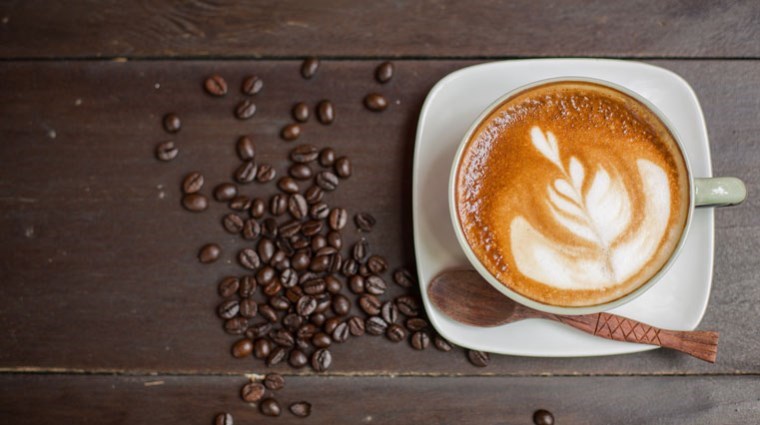
Your cup of coffee isn’t just a part of a rejuvenating morning routine. The caffeine it contains can have performance benefits for runners and ultrarunners – potentially improving your energy, mental focus and alertness, power output and minimising your perception of effort, so running feels easier. In endurance races, caffeine can also ward off ‘hitting a wall’ to reduce your performance decline as the race progresses.
First and foremost, it’s important to not overdo your caffeine intake, as this can have adverse effects including digestive upset, elevated heart rate, increased urination, anxiety and trembling hands that can be detrimental to your performance and wellbeing. When abused, caffeine can also cause a sudden energy spike and then an overwhelming fatigue.
It’s important to drink caffeine responsibly and consider how you’ll integrate it in your nutrition strategy in advance if you believe it’s an option for you.
Test caffeine infused energy gels during training to ensure the quantity and frequency works for you and that you don’t have any particular caffeine intolerances. Ideally, you’ll be working with your sports nutritionist to determine an effective dose for you at its lowest range to avoid negative symptoms, as well as the timing of your caffeine supplementation on race day.
What Dose Of Caffeine Is Needed To Boost Your Physical & Mental Performance?
As a general guideline, 400mg per day or less of caffeine is considered acceptable for most healthy adults, unless pregnant or breastfeeding, on an average day.
When we look at caffeine with an endurance or training focus, 3 - 5mg of caffeine per kg of body weight is suggested to have a positive effect on performance when taken 60 minutes pre-training or pre-race. In some runners, a dose as little as 1 - 3mg/kg can be effective.
Particularly if you haven’t built up a tolerance to caffeine, it’s important to trial caffeine at the lower end of this spectrum to develop an understanding of your body’s response to it. Please have a discussion with your healthcare professional before making any major adjustments to your diet.
To put into perspective of what these number equate to, here’s a quick caffeine guide:
- A cup of instant coffee contains around 80mg – 120mg of caffeine per 250ml
- An espresso or latte contains 105 - 110mg of caffeine per 250ml
- A black tea contains 65 – 105mg of caffeine per 250ml
- Dark chocolate contains 40 – 50mg per 55g serve
- The SIS Go Plus Caffeine Isotonic Energy Gel contains 75mg of caffeine per 60ml gel
- The caffeinated flavours of Koda Energy Gel (Cappuccino, Cola Vanilla, Green Plum) contain 80mg of caffeine per 45g gel
- The caffeinated flavours of Huma Chia Energy Gel Plus (Lemons & Limes, Strawberry Lemonade) contain 25mg of caffeine per 44g gel
- The caffeinated flavours of Tailwind Nutrition Endurance Fuel (Matcha, Raspberry, Tropical, Cola) contain 35mg per 100 calories
-
Koda Energy Gel - 45g Sachet
-
Huma Chia Energy Gel Plus - 44g Sachet
-
SIS Go Plus Caffeine 75mg Isotonic Energy Gel - 60ml Sachet - Berry
How To Use Caffeine In Your Ultramarathon Nutrition Strategy
Understanding the caffeine content in your energy gels can help you fine-tune your nutrition strategy on race day. As there is a considerable range of caffeine per serving from brand to brand, always check the content in the nutritional information of that specific product before purchasing.
Some ultrarunners integrate their morning coffee into their pre-race ritual (drinking it about 60 minutes before the race, or pre-caffeinate at this time with a caffeine infused energy gel). They'll then supplement their caffeine intake with caffeinated gels throughout the course of the race. If this is you, remember to include your coffee when calculating your overall caffeine consumption.
In terms of a 50km ultramarathon, other ultrarunners stick to non-caffeinated gels in the first half of the race and reserve their caffeinated energy gels until half way through to provide an energy boost. From this point they may continue to supplement with caffeine energy gels as need (potentially 50mg of caffeine/hour). Other marathoners/ultrarunners may reach for that caffeine kick only at the very end, in the last 60 - 90 minutes of the race.
The onset and duration of caffeine’s performance-boosting effects can vary from person to person, and the source of the caffeine itself, so always take note of the recommendations of the manufacturer.
In the case of SIS Go Plus Caffeine Energy Gels, SIS (Science In Sport) recommended consumption of an energy gel 30 minutes pre-race or pre-training, and topping up your caffeine levels with 1-2 caffeinated gels from their range when fatigue kicks in in the final leg of your endurance workout.
Ultramarathon Nutrition: Importance Of Hydration

It’s no secret that water is not only critical to your performance, but your survival. Dehydration can be catastrophic when ultrarunning, with symptoms including:
- Poor concentration or confusion
- Headaches
- Fatigue or lightheadedness
- Muscle cramps
- Swollen feet
Staying well-hydrated is the goal, with multiple performance benefits such as:
- Aiding in nutrient digestion and absorption
- Increasing your blood volume to support the transport of oxygen to your working muscles
- Lubricating your muscles and joints
- Reducing your risk of overheating by regulating body temperature
- Improving your mental focus
Planning Your Ultramarathon Hydration Strategy
Your hydration plan should include drinking small amounts of water regularly, and this applies to pre-, during and post-race. It’s important to remember that your hydration and nutrition plan isn’t solely about what you eat and drink during your race, but before, after and in everyday life. These hydration tips can help keep you on track.
There is no cookie cutter approach to hydration, however as a guideline it’s recommended that ultramarathoners drink no less than 400ml – 600ml of water or a high-quality sports drink in the 2 hours prior to the race starting.
During the race, opinions on water consumption vary, but as a guide drinking 400ml - 800ml per hour in small, regular amounts will help maintain healthy hydration levels and replenish fluids lost in sweat.
If you don’t tend to drink on autopilot or instinctively, it may be worth setting an alarm with your sports watch at 15 minute intervals to stay on top of your hydration rather than waiting until your thirsty. Running hydration packs make it extremely convenient to sip on-the-run, meaning you don’t have to slow down to drink up.
The risk of drinking to thirst is that once thirsty, your body is already dehydrated, impairing your performance and potentially being detrimental to your health. Rather than testing your tolerance for dehydration on race day, stay prepared by keeping your hydration close.
This will allow you to reliably and consistently top up your fluid intake, without feeling the need to ‘catch up’ by gulping 700ml of water in one hit or solely relying on aid stations. A large amount of water can take a considerable time for your body to absorb and can have adverse consequences, particularly gastrointestinal distress as the water ‘sloshes’ in your stomach, or even put excess strain on your kidneys.
Know Your Body to Hydrate Better
The sweat rate test can provide personalised guidance on your individual hydration needs, with your genetics, gender, body weight, fitness level, pace, metabolic rate and external conditions all factors that play a part. It’s recommended that you perform the sweat rate test under a variety of temperature conditions during your ultramarathon training and note how this influences your hydration demands.
It’s important to have an ultramarathon hydration plan in mind, but to also embrace flexibility. For example, in severe heat especially it’s important to ‘check in’ with your body on the run and potentially drink more water, more frequently to cater to the increased hydration demands of your body. Sweat is your body’s natural cooling mechanism, which you can support by being conscious of your hydration demands and acting on them.
The problem many athletes face, is that their kidneys can only process so much water at a time, a maximum of 800ml - 1L an hour.
During an ultramarathon, losing 1-1.5L of fluid in sweat per hour is typical for many athletes, but this number can be significantly greater depending on the conditions and your personal sweat rate.
This makes it difficult to bridge the gap created by a fluid deficit in reference to the fluid lost in sweat. It isn’t about replacing water ml for ml as this isn’t realistic and can potentially cause overhydration, leading to electrolyte imbalance (particularly low blood sodium). Generally, a replacement of about 80% of water (adjust based on your specific conditions) is a beneficial and achievable goal for most athletes.
PREPD Hydration Enhancer
To avoid dehydration-related declines in performance, many ultramarathoners have integrated PREPD Hydration into their hydration strategy. Unlike a standard sports drink, PREPD is a hydration enhancer - complementing rather than replacing water and working under the philosophy to “make water work harder”.
Developed through the collaboration of Flinders University and Yale University, the research behind PREPD originally focused on creating a medical solution to treat extreme dehydration in developing countries and later was applied to sports nutrition through the formulation of PREPD.
A unique resistant starch (‘digestion-resistant’ by the small intestine) was identified that could travel through the small intestine without being absorbed. It could then maximise the fluid absorption of the large intestine, which under normal conditions only accounts for 10% (in combination with the stomach) of water and nutrient absorption.
One of the large intestine’s primary roles is to absorb water and salts from ‘leftover’ matter that hasn’t been digested further up the digestive system. By maximising the large intestine's efficiency through PREPD, runners can gain more hydration benefits from the water they drink.
PREPD is available in both a performance-focused formula, PREPD Prime (to be ingested 10 – 18 hours prior to your ultramarathon), and a recovery-focused formula with an electrolyte boost to replenish electrolytes lost in sweat, PREPD Recover.
-
Prepd Prime Pre-Workout Hydration Enhancing Sports Drink - 350ml
-
Prepd Recover Post-Workout Hydration Enhancing Sports Drink - 350ml
-
Prepd Prime Pre-Workout Hydration Enhancing Powder - Sachet
Happy training, fuelling and hydrating!
If you liked this, you'll love:
Mandatory Gear Guide: Everything You Need To Run An Ultramarathon
Sports Nutrition: Healthy Carbs, Protein & Fats To Improve Performance & Recovery
6 Major Marathons For Your Bucket List

